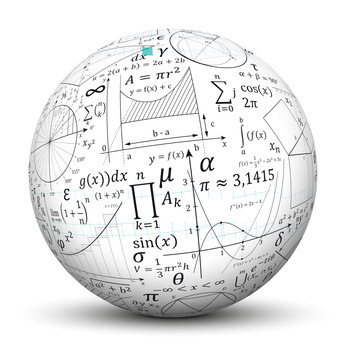Economics — a rogue branch of applied mathematics A lot of people complain about the math in economics. Economists tend to quietly dismiss such complaints as the sour-grapes protests of literary types who lack the talent or training to hack their way through systems of equations. But it isn’t just the mathematically illiterate who grouse. New York University economist Paul Romer — hardly a lightweight when it comes to equations — recently complained about how economists use math as a tool of rhetoric instead of a tool to understand the world. Personally, I think that what’s odd about econ isn’t that it uses lots of math — it’s the way it uses math. In most applied math disciplines — computational biology, fluid dynamics, quantitative finance — mathematical theories are always tied to the evidence. If a theory hasn’t been tested, it’s treated as pure conjecture. Not so in econ. Traditionally, economists have put the facts in a subordinate role and theory in the driver’s seat. Plausible-sounding theories are believed to be true unless proven false, while empirical facts are often dismissed if they don’t make sense in the context of leading theories. This isn’t a problem with math — it was just as true back when economics theories were written out in long literary volumes.
Topics:
Lars Pålsson Syll considers the following as important: Economics
This could be interesting, too:
Lars Pålsson Syll writes Schuldenbremse bye bye
Lars Pålsson Syll writes What’s wrong with economics — a primer
Lars Pålsson Syll writes Krigskeynesianismens återkomst
Lars Pålsson Syll writes Finding Eigenvalues and Eigenvectors (student stuff)
Economics — a rogue branch of applied mathematics
A lot of people complain about the math in economics. Economists tend to quietly dismiss such complaints as the sour-grapes protests of literary types who lack the talent or training to hack their way through systems of equations. But it isn’t just the mathematically illiterate who grouse. New York University economist Paul Romer — hardly a lightweight when it comes to equations — recently complained about how economists use math as a tool of rhetoric instead of a tool to understand the world.
Personally, I think that what’s odd about econ isn’t that it uses lots of math — it’s the way it uses math. In most applied math disciplines — computational biology, fluid dynamics, quantitative finance — mathematical theories are always tied to the evidence. If a theory hasn’t been tested, it’s treated as pure conjecture.
Not so in econ. Traditionally, economists have put the facts in a subordinate role and theory in the driver’s seat. Plausible-sounding theories are believed to be true unless proven false, while empirical facts are often dismissed if they don’t make sense in the context of leading theories. This isn’t a problem with math — it was just as true back when economics theories were written out in long literary volumes. Econ developed as a form of philosophy and then added math later, becoming basically a form of mathematical philosophy.
In other words, econ is now a rogue branch of applied math.
Indeed.
No, there is nothing wrong with mathematics per se.
No, there is nothing wrong with applying mathematics to economics.
 Mathematics is one valuable tool among other valuable tools for understanding and explaining things in economics.
Mathematics is one valuable tool among other valuable tools for understanding and explaining things in economics.
What is, however, totally wrong, are the utterly simplistic beliefs that
• “math is the only valid tool”
• “math is always and everywhere self-evidently applicable”
• “math is all that really counts”
• “if it’s not in math, it’s not really economics”
• “almost everything can be adequately understood and analyzed with math”
One must, of course, beware of expecting from this method more than it can give. Out of the crucible of calculation comes not an atom more truth than was put in. The assumptions being hypothetical, the results obviously cannot claim more than a vey limited validity. The mathematical expression ought to facilitate the argument, clarify the results, and so guard against possible faults of reasoning — that is all.
It is, by the way, evident that the economic aspects must be the determining ones everywhere: economic truth must never be sacrificed to the desire for mathematical elegance.
